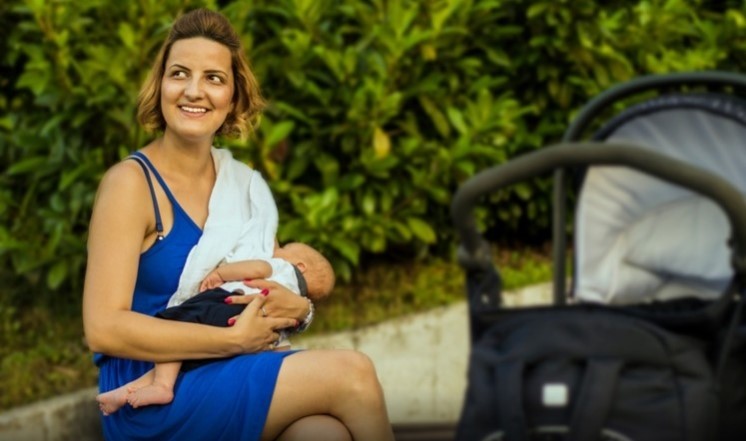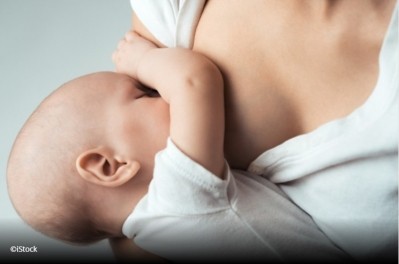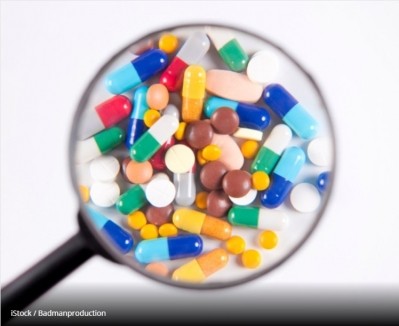WHO cites ‘negligible’ breastfeeding-coronavirus link as benefits reiterated

In a live Q&A coinciding with World Breastfeeding Week, Dr Laurence Grummer-Strawn, the WHO’s head of the food and nutrition action in health systems unit was firm in the WHO’s stance on breastfeeding.
“WHO has been very clear in its recommendations to say absolutely breastfeeding should continue,” he said.
“We have never documented, anywhere around the world, any (COVID-19) transmission through breastmilk.”
Dr Grummer-Strawn also highlighted the benefits of exclusive breastfeeding especially for the first six months and to the mother.
This included evidence pointing to breastfeeding as a way to reduce a baby’s risk of developing infectious diseases due to the immunoglobulins, antiviral factors, cytokines and leucocytes present in breastmilk that help to destroy pathogens and boost the baby’s immune system.
“This is only one of the reasons why new mothers should initiate “skin-to-skin contact” and “room-in” with their babies quickly,” Dr Grummer-Strawn said as “the risks of transmission of the COVID-19 virus from a COVID-positive mother to her baby seem to be extremely low”.
The WHO’s advice mirrors that of UNICEF and the Centers for Disease Control and Infection (CDC), which says no conclusive evidence at this time links the infection with breastmilk or donor breast milk.
Regarding formula feeding, UNICEF adds that parents should adhere to current guidance on washing and sterilising equipment.
Parents should be supported to bottle feed responsively, the organisation adds, including pacing feeds and limiting the number of people who feed their baby.
The Code
However, the Q&A session broadcast on Tuesday, was also an opportunity for the WHO to highlight countries’ treatment of the International Code of Marketing of Breast-milk Substitutes.
This Code is a series of voluntary global health policies regulating the marketing of breastmilk substitutes in order to protect breastfeeding.
According to the WHO, of the 194 countries analysed, 136 have legal measures in place with 79 countries prohibiting the promotion of breast-milk substitutes in health facilities.
A WHO report in May found only 51 had provisions that prohibit the distribution of free or low-cost supplies within the health care system.
The United Nations also produced a report, which found only 19 countries banned the sponsorship of scientific and health professional association meetings by manufacturers of breast-milk substitutes.
These include infant formula, follow-up formula, and growing up milks marketed for use by infants and children up to 36-months old.
Despite the WHO’s findings, the infant formula industry has always insisted it adheres to regulations governing the communication of its products.
‘Options for women’
“Our infant formulas are based on scientific research, and we stand behind the nutritional value of these products,” said Danone, makers of the popular Aptamil follow-on milk, in an article published in June.
“We do believe breast milk is the best source of nutrition for babies, and we make this very clear on our website and all our communications,” the spokesperson added.
“But there needs to be options for women who can’t or who choose not to breast feed, and are searching for safe, nutritious alternatives for their babies.
“The information we provide helps parents choose the formula that is right for their baby’s needs and we don’t agree that it’s misleading.
“Infant formula is highly regulated, and all our formulas and communications must meet strict legal standards to ensure they are safe and the information we provide is factual and accurate. Furthermore, we ensure all our products and claims meet strict European and local regulations.”
In March of last year, The British Medical Journal (BMJ) stopped carrying advertisements that featured breastmilk substitute products, costing the publication an estimated €350 000 (£300 000; $400 000) in 2020.
The decision was the latest in a growing backlash against infant formula firms and their relationships with publications, national health services, paediatricians and membership organisations.
In the month prior to the BMJ’s decision, The Royal College of Paediatrics and Child Health (RCPCH) agreed to suspend future funding agreements with formula milk companies pending a College review.















